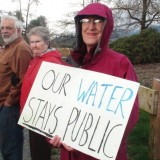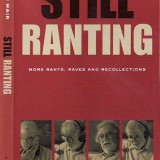From ipolitics.ca – May 30, 2011
by Mike De Souza
The federal government has acknowledged that it deliberately excluded
data indicating a 20 per cent increase in annual pollution from
Canada’s oilsands industry in 2009 from a recent 567-page report on
climate change that it was required to submit to the United Nations.
The
numbers, uncovered by Postmedia News, were left out of the report, a
national inventory on Canada’s greenhouse gas pollution. It revealed a
six per cent drop in annual emissions for the entire economy from 2008
to 2009, but does not directly show the extent of pollution from the
oilsands production, which is greater than the greenhouse gas emissions
of all the cars driven on Canadian roads.
The data also indicated
that emissions per barrel of oil produced by the sector is increasing,
despite claims made by the industry in an advertising campaign.
“The
oilsands remain Canada’s fastest-growing source of greenhouse gas
pollution, and they’re the subject of a huge amount of attention and
scrutiny in Canada and internationally,” said Clare Demerse, director of
climate change at the Pembina Institute, an Alberta-based environmental
research group. “So it’s very disappointing to see Environment Canada
publish a 500-page report that leaves out these critical numbers —
especially when last year’s edition included them.”
Overall,
Environment Canada said that the oilsands industry was responsible for
about 6.5 per cent of Canada’s annual greenhouse gas emissions in 2009,
up from five per cent in 2008. This also indicates a growth in emissions
that is close to about 300 per cent since 1990, which cancel out many
reductions in pollution from other economic sectors.
The report
attributes the six per cent decrease in Canada’s overall emissions to
the economic slowdown, but it also credits efforts by the Ontario
government to reduce production of coal-fired electricity as a
significant factor.
Environment Canada provided the oilsands
numbers in response to questions from Postmedia News about why it had
omitted the information from its report after publishing more detailed
data in previous years. A department spokesman explained that “some” of
the information was still available in the latest report, which still
meets Canada’s reporting obligations under the UN Framework Convention
on Climate Change.
“The information is presented in this way to be
consistent with UNFCCC reporting requirements, which are divided into
broad, international sectors,” wrote Mark Johnson in an email.
He
was not immediately able to answer questions about who made the decision
in government to exclude the numbers from the oilsands or provide a
detailed explanation about changes in emissions.
An industry
spokesman said it favoured more transparency from the government,
suggesting that some of the figures may be misleading because of changes
in methods used to identify and calculate emissions.
“It’s just
too bad you weren’t able to get a hold of (Environment Canada) on this
one, because here I am telling you my understanding of what’s going on,
but really it’s best to hear directly from them,” said Greg Stringham,
vice-president of oilsands and markets at the Canadian Association of
Petroleum Producers. “We report the information to them, and they choose
to pass it on — they must pass it on the UN. But then they choose how
to disclose it and put it out there.”
Although Stringham said that
the industry figures did not show any significant growth in emissions
per barrel of oil produced, the full report noted an intensity increase
of 14.5 per cent from 2008 to 2009, “mainly the result of a new
integrated mining and upgrading facility as well as a new integrated
in-situ bitumen extraction and upgrading facility,” that were not
operating at “peak efficiencies.”
Emissions from a mining
category, which includes oilsands extraction, saw a 371 per cent
increase in greenhouse gas pollution, according to the report. But other
categories showed significant decreases due, in part, to the recession,
but also because of changes in use of fuel and manufacturing
operations.
Environment Canada’s report recognizes that climate
change is occurring, mainly due to an increase in heat-trapping gases in
the atmosphere. The objective of the UNFCCC is to stabilize these
emissions in order to prevent dangerous changes to the climate.
Critics
have suggested the Harper government is deliberately trying to delay
international action to fight climate change, following revelations,
reported last fall by Postmedia News, that it had set up a partnership
with the Alberta government, industry and several federal departments to
fight pollution-reduction policies from other countries that target the
oilsands through lobbying and public relations.
Environment
Minister Peter Kent has said the federal government is committed to
reducing Canada’s greenhouse gas emissions and will introduce its plan
to regulate pollution from the oilsands within months. But he has also
acknowledged that existing federal and provincial policies would still
result in an increase in emissions over the next decade.
Although
the report was due in April, during the last election campaign, Canada
was the last country to file its submission. Environment Canada even
filed its submission after earthquake-stricken Japan, and was unable to
explain in detail why its report was late.
Read original article






